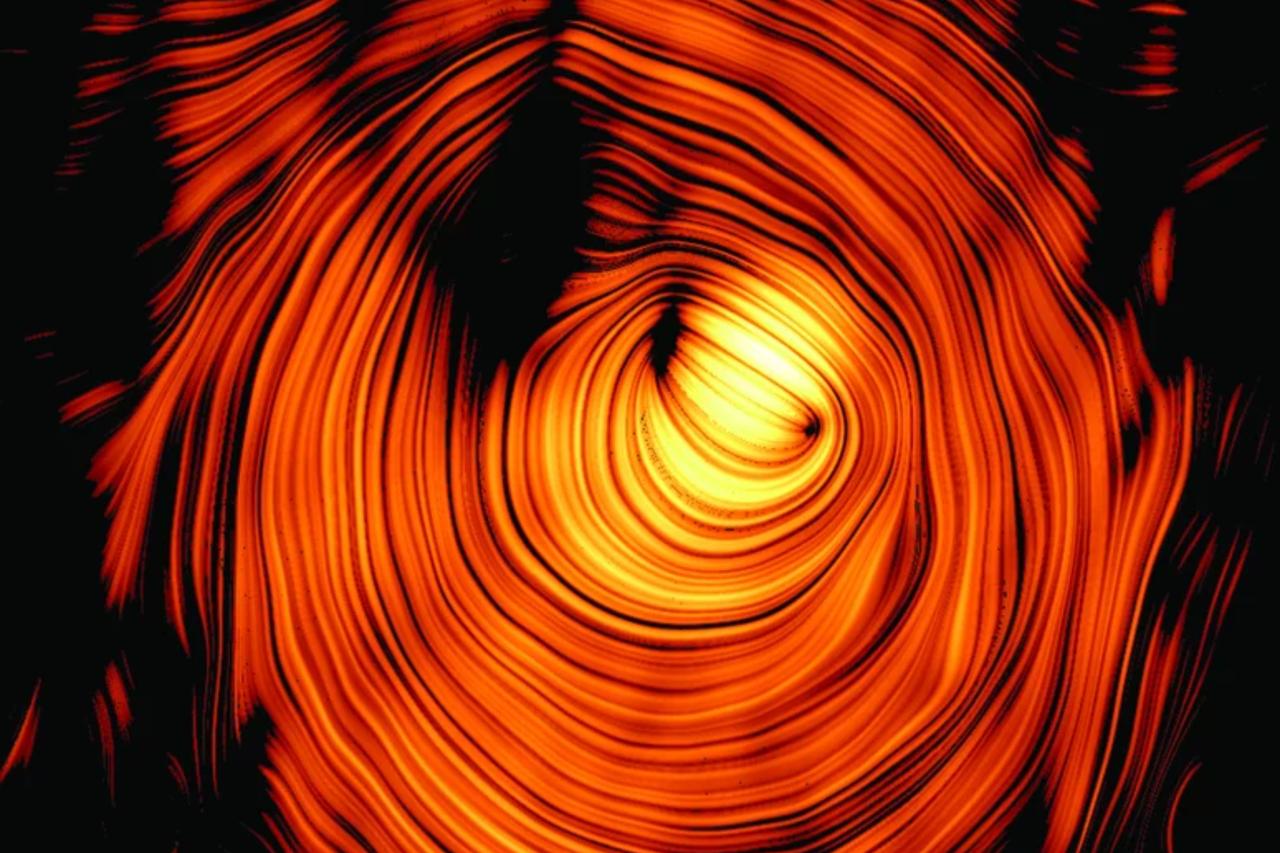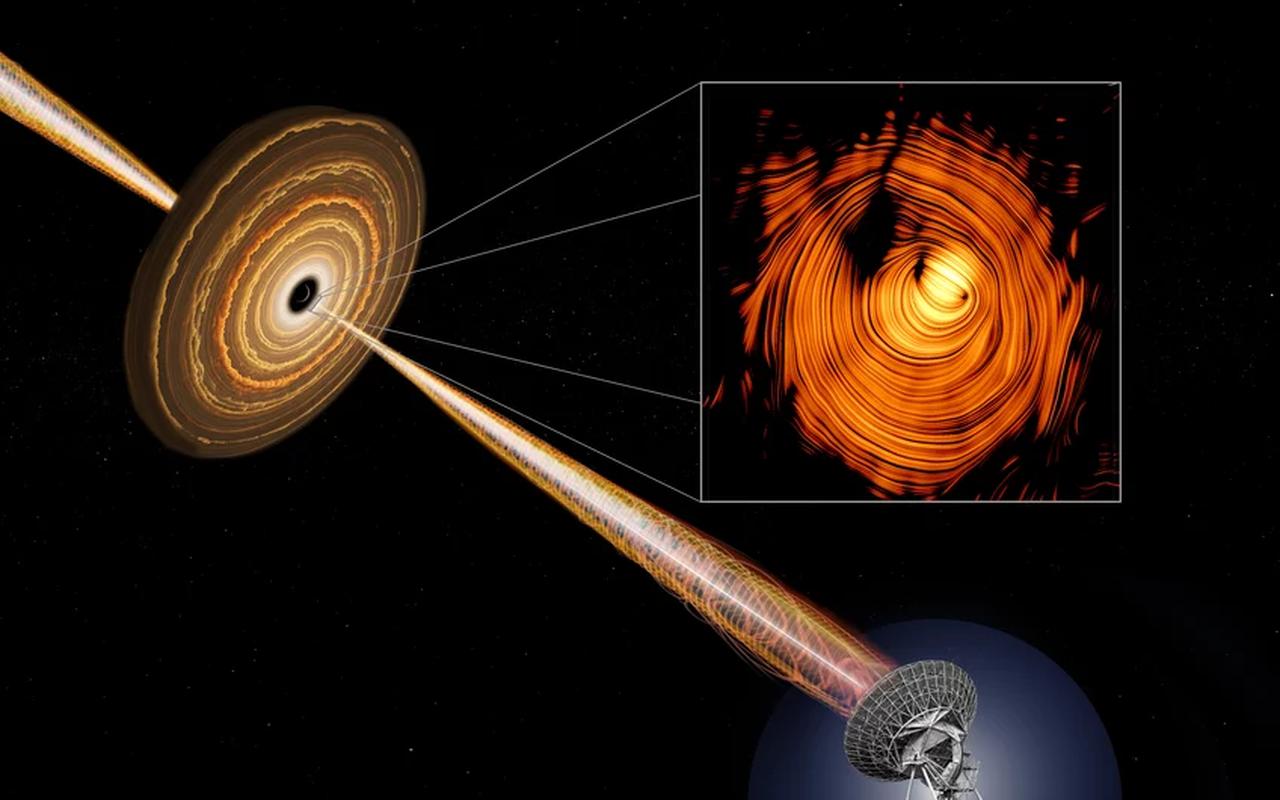
Astronomers have revealed a detailed image of a cosmic object that bears an uncanny resemblance to the fictional “Eye of Sauron” from J.R.R. Tolkien’s "The Lord of the Rings"—but in reality, it is a powerful astronomical phenomenon known as a blazar.
The image shows PKS 1424+240, a blazar located billions of light-years away. Blazars are a type of quasar—the intensely luminous core of an active galaxy powered by a supermassive black hole—with jets of high-energy particles aimed within about 10 degrees of Earth. This alignment makes them appear even brighter than other quasars, though it does not increase their danger to our planet.

According to the research team, data collected over 15 years by the Very Long Baseline Array was combined to produce the image, revealing what they describe as a near-perfect ring-shaped (toroidal) magnetic field and a jet directed toward us. One of the researchers noted: “We have never seen anything quite like it.”
PKS 1424+240 is considered one of the brightest known sources of high-energy gamma rays and cosmic neutrinos. Neutrinos, often called “ghost particles,” are nearly massless and interact so rarely with matter that trillions pass through the human body every second without any effect. The IceCube Neutrino Observatory at the South Pole first detected this blazar due to its unusually high neutrino emissions.
The findings confirm that active galactic nuclei not only accelerate electrons but also protons, helping to explain the origin of these high-energy neutrinos. By reconstructing the blazar’s image, scientists have been able to look deeper into the heart of its jet, gaining valuable insight into the dynamics of these extreme cosmic accelerators.